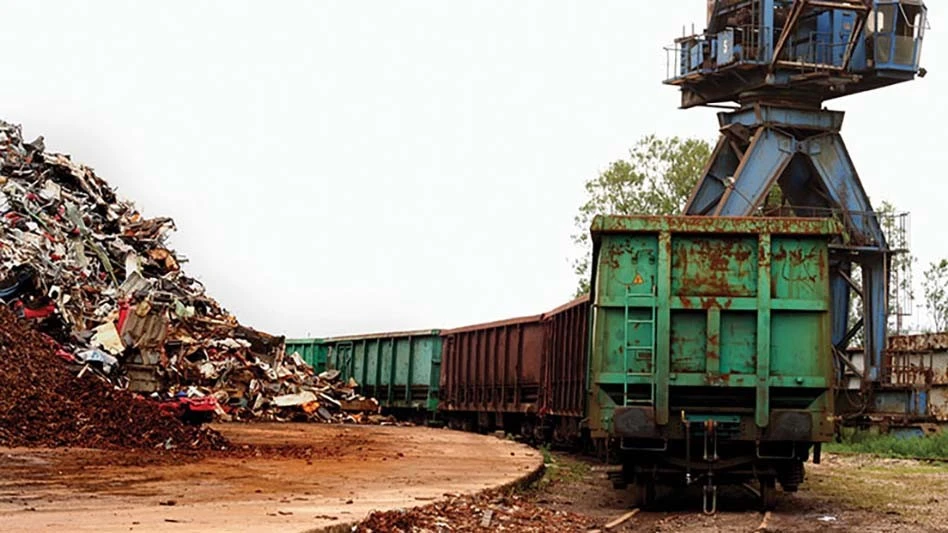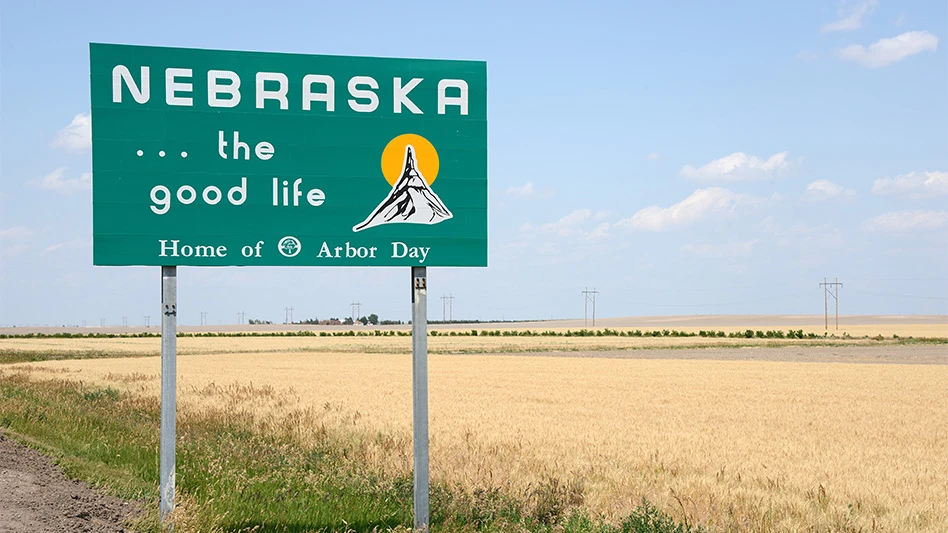
© AmpH | istockphoto.com
The U.S. House of Representatives passed a bill that would avert a potential rail strike Wednesday, Nov. 30.
According to AP News, the measure passed by a vote of 290-137 and headed to the Senate, which voted in favor of the legislation Dec. 1. However, the Senate rejected a second bill that also passed in the House Nov. 30 to provide seven days of paid sick leave to railroad employees.
The bill that passed Congress will impose a compromise labor agreement brokered by the Biden administration in September that was voted down by four of the unions representing more than 100,000 employees at large freight rail carriers.
U.S. railroad unions secured a tentative labor agreement in September after about 20 hours of talks brokered by the Biden administration to avert a rail shutdown, but four unions rejected that agreement in October. The unions that rejected the September labor agreement want the agreement to include more paid sick leave for workers. AP News says the unions threatened to strike if an agreement was not reached by Dec. 9.
“I am grateful to Speaker Pelosi and House Democrats and Republicans for taking urgent action to prevent a rail shutdown,” President Joe Biden says in a Nov. 30 statement on the House passage of the bill to block the strike. “This overwhelming bipartisan vote in the House of Representatives makes clear that Democrats and Republicans agree that a rail shutdown would be devastating to our economy and families across the country.”
Biden had urged the Senate to act quickly to pass the measure to ensure railroads will continue to operate.
Many industry trade groups, including several within the recycling industry, reached out to lawmakers in recent weeks urging them to pass a measure to avert a rail strike.
The Washington-based Institute of Scrap Recycling Industries (ISRI) sent several letters to lawmakers in the Senate and House in recent weeks urging President Biden and lawmakers to take action to avert a rail strike and discussing the implications that a rail strike could have on the recycled materials industry and economy at large. “The implications [of a rail strike] to the supply chain will just be horrendous. That will affect the economy, as well,” says Billy Johnson, chief lobbyist at ISRI.
Had Congress not acted, Johnson says railroads might have begun to announce they would not accept any additional rail cars in the weeks leading up to a potential strike.
“[The railroads] don’t want to take your car, move it 100 miles, stop and then your car is sitting 200 miles away waiting for a rail strike to end,” he says. “Railroads are going to take action this week. That’s why it’s important for Congress to pass something, some kind of resolution to get to the president’s desk to keep the unions working."
He continues, “We want Congress to get in there, do something and avert the strike. … Rails are backed up and don’t have capacity to move what we have now, much less the capacity if they get backlogged a couple of weeks.”
Although recycled materials also can be moved by truck or barge in many instances, Johnson says many recyclers and consumers of recyclables rely heavily on rail.
“Two-hundred-fifty miles is about all you can truck for—anything above that will go train,” Johnson says. “Is barge available? … In St. Louis, yes, we can use barge. In Utah, no, there aren’t a lot of options for us. We also have tightness in the trucking market; we’re 40,000 drivers short.”
The Washington-based American Iron and Steel Institute (AISI) also sent letters to congressional leaders recently urging the passing of legislation to ensure freight rail systems remain fully operational.
“The potential for significant disruption in the critical national rail system would have serious consequences for the domestic steel industry and the entire U.S. economy,” says Kevin Dempsey, president and CEO of AISI. “The recent rejection of the agreement reached between the railroads and the negotiators for rail labor organizations in September has raised concerns that a harmful interruption to the rail system may occur as soon as early next week. While a voluntary agreement among all parties to the ongoing rail negotiations is clearly the best outcome, congressional action is necessary to ensure that our nation’s freight rail system remains operational.”
He adds that railroads hauled more than 1.5 million carloads of steel in 2021. “The nation's railroads are an indispensable necessity for the health and survival of our domestic steel industry.”
The National Waste & Recycling Association (NWRA), Arlington, Virginia, also signed a coalition letter to congressional leaders calling on them to take steps to prevent a rail strike. Other groups that signed the coalition letter include the Aluminum Association, American Beverage Association, American Chemistry Council and American Forest & Paper Association.
“A rail strike would be economically devastating to America and could also lead to a public health crisis if waste and recyclables that are transported by rail to recycling facilities and landfills are unable to be moved,” NWRA President and CEO Darrell Smith says. “Should the unions and rail companies be unable to reach an agreement, we urge Congress to act under its authority to impose the Presidential Emergency Board’s proposed solution.”
The Washington-based American Chemistry Council (ACC) commended the U.S. House vote to approve the bill to adopt the tentative agreement brokered between union leadership and railroads in September. According to ACC, U.S. chemical manufacturers ship 33,000 carloads per week on average.
“We applaud the swift bipartisan action in the House to head off a shutdown of the rail network,” Chris Jahn, ACC president and CEO, said after the House vote. “Without a final solution from Congress, in less than a week, railroads will begin suspending shipments of chemicals that are vital to disinfecting water, producing food and refining gasoline. There is no time to waste. We urge the Senate to act quickly and approve the legislation passed by the House that implements the terms of the tentative agreement.”
*This article was updated Dec. 2 to reflect the Senate's passage of the bill to avert the rail strike.
Latest from Waste Today
- Taurus RNG awarded funding for integrated anaerobic digestion, carbon sequestration facility
- EPR implementation working group adopts nationwide focus
- Terex reports higher Q4 sales, strong bookings to close 2025
- Mardi Gras sustainability initiative collects 14K pounds of recyclables
- Republic Services appoints Ian Craig to board of directors
- Phoenix Public Works Department proposes solid waste rate increases
- EQT, Blackstone Infrastructure to acquire Urbaser
- Colorado county extends hazardous waste management contract with Clean Harbors





